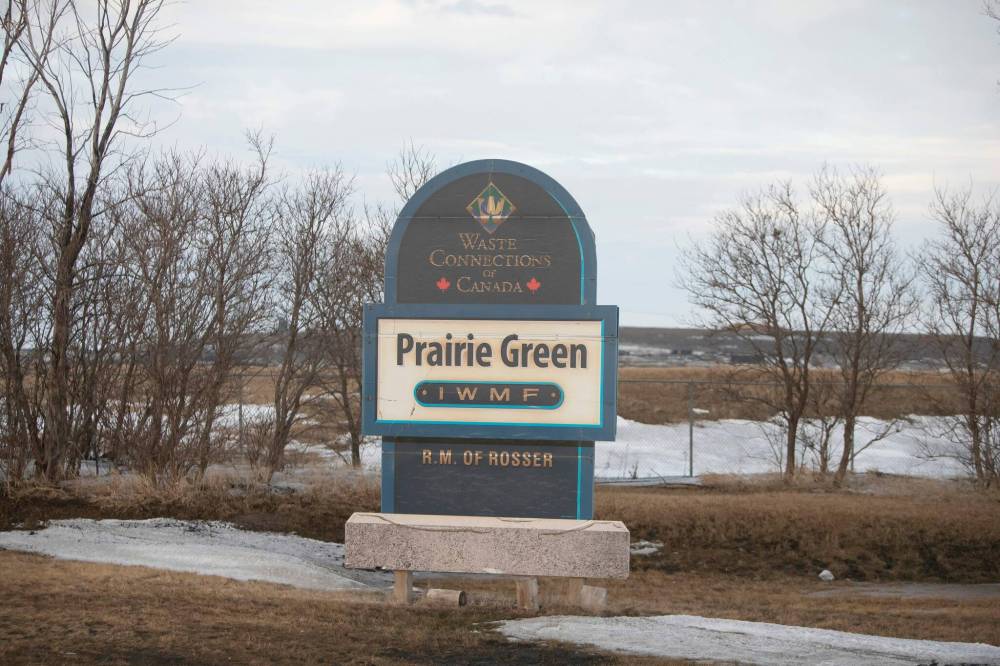A necessary search winds down
Advertisement
Read this article for free:
or
Already have an account? Log in here »
To continue reading, please subscribe:
Monthly Digital Subscription
$0 for the first 4 weeks*
- Enjoy unlimited reading on winnipegfreepress.com
- Read the E-Edition, our digital replica newspaper
- Access News Break, our award-winning app
- Play interactive puzzles
*No charge for 4 weeks then price increases to the regular rate of $19.95 plus GST every four weeks. Offer available to new and qualified returning subscribers only. Cancel any time.
Monthly Digital Subscription
$4.99/week*
- Enjoy unlimited reading on winnipegfreepress.com
- Read the E-Edition, our digital replica newspaper
- Access News Break, our award-winning app
- Play interactive puzzles
*Billed as $19.95 plus GST every four weeks. Cancel any time.
To continue reading, please subscribe:
Add Free Press access to your Brandon Sun subscription for only an additional
$1 for the first 4 weeks*
*Your next subscription payment will increase by $1.00 and you will be charged $16.99 plus GST for four weeks. After four weeks, your payment will increase to $23.99 plus GST every four weeks.
Read unlimited articles for free today:
or
Already have an account? Log in here »
It was the right thing to do. It was always the right thing to do. And most Manitobans knew it.
Early this week, Premier Wab Kinew visited the Prairie Green landfill to mark the end of the search for human remains at the site. He was joined by family members of Morgan Harris and Marcedes Myran, by supporters, and by people involved in the search for a ceremony and smudging.
The search was not completely a success — the family of Myran had hoped the search would find a larger part of her remains than were located, and wanted the search to include a larger area — but there is at least the consolation that Myran was found.

BROOK JONES / FREE PRESS
Prairie Green Landfill in the RM of Rosser, Man.
Watching the conclusion of this part of the search for the remains of victims of Jeremy Skibicki — a further search continues at the Brady landfill for Ashlee Shingoose — brings home how important the search was in the first place, and how dispiriting it was that the PC government of the day not only wouldn’t launch a search, but actively campaigned on the decision not to search.
There have been plenty of apologies and admissions that the decision was a poor one since then: the Progressive Conservatives have apologized, the Winnipeg Police Service has said it regrets its decision to say that a search was not necessary, and the list goes on.
But what’s surprising is that anyone ever thought the matter was up for political debate, that anyone felt that the potential cost of the search was a legitimate reason to say that two women should have their final resting place be a landfill.
Consider this.
George Mallory and Andrew (Sandy) Irvine disappeared while climbing Mount Everest in June of 1924, and there have been questions ever since about whether the pair had made it to the mountain’s summit.
Mallory’s remains were found in 1999, but nothing was found of Irvine until September, 2024, when a documentary team found a foot inside a boot and sock protruding from a melting glacier. The sock had a label with Irvine’s name sewn on it, and the remains are being compared to the DNA of family members for final confirmation.
The film crew that found foot, sock and boot knew how important the discovery was — and not just for understanding more about the Mallory expedition.
“It’s the first real evidence of where Sandy ended up,” Jimmy Chin, a National Geographic filmmaker, told National Geographic. “When someone disappears and there’s no evidence of what happened to them, it can be really challenging for families.”
Irvine’s relative Julie Summers said was “moved to tears” when she learnt of the boot’s existence a report from the PA Media news agency said. “I have lived with this story since I was a seven-year-old when my father told us about the mystery of Uncle Sandy on Everest.”
It’s why we search for the lost. Because it matters.
Because it’s important to family members to know what has happened to their relatives, and where those relatives rest. It matters days after someone disappears, and it matters 100 years later, and it continues to matter, no matter how many years pass. All of us should be able to try and put ourselves in others’ shoes.
We search for the remains of those lost at sea, lost on land, lost in war and lost in terrorist attacks. Millions of dollars have been spent on all sorts of searches, from hunts for famous explorers and the remains of their expeditions — like those of the Franklin expedition — to searches for individuals who vanish from their vehicles in blizzards, seeking, and failing to find shelter.
Helping find the missing is part of being in the community that we call humanity.


